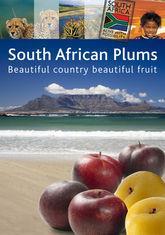
The South African stonefruit industry is to team up with the South African government to promote the country as the preferred source of plums in season and as a top tourist destination.
The £300,000 equal joint venture will launch early next year and focus on plum arrivals from January to March, together with tourist promotions ahead of the 2010 World Cup, in South Africa.
The big four retailers, Tesco, Asda, Sainsbury’s and Morrisons, have already pledged to come on board.
Jasmine Harman, who presents Channel 4 show A Place in the Sun, will kick off the campaign with a launch event in London, followed by a 15-stop radio tour.
A host of activities, including in-store tastings and advertorials in consumer magazines including BBC Good Food, Food & Travel, Good Housekeeping and Olive, will support the campaign.
The plums will be sold with the slogan - Beautiful Country, Beautiful Fruit - under the South Africa: Alive with Possibility brand.
Stefan Conradie, product manager at the Stonefruit Joint Marketing Forum, said: “We have lost the identity of South African fruit. If you look in any retailer today, you will not see any exporter brands - if you look on the pack, there is the country of origin, but it is not clear.
“We realised we needed a platform to talk about South Africa and we want to use fruit as a vehicle to communicate with consumers in other countries. To create an interesting story for the consumer, we decided to combine tourism with our product.
“We want to make the funding a statutory levy for the next four years, rather than voluntary, because we want more commitment and we want this to work,” he told FPJ. “Our growers are starting to realise that communication is important, and that we have to do something to sell the product.”
Producers in each of the nine production areas in South Africa were consulted over the creation of a statutory levy to support the campaign, which will see them pay around 3p for every carton exported.
Growers representing 65 per cent of plum production voted and, of those, 98 per cent supported the move and said they were in favour of market development.



